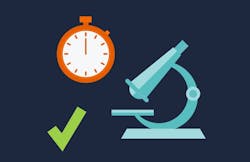It's Time to Eliminate 'Supplement' from Your Shop's Vocabulary
Tell me if you’ve heard this one before: I wrote an estimate the other day. A good customer sent us several good photos of a broken mirror on a Ford Focus. The mirror came as an assembly and there were no painted parts. We scheduled the customer and pre-ordered the mirror. When the car was dropped off, we realized that I ordered the wrong side mirror. A 45-minute job just turned into a seven-hour job.
There are so many things wrong with this scenario. First, I had a picture of the mirror and never took the time to “mirror match”—oh, the irony in that one—the new part with the picture of the damaged part. Second, I never took a look at the work order that was generated to see if it matched the work we intended to do. Both of these items are part of our standard operating procedures. However, because replacing a non-painted, one-part mirror assembly is such an easy job, I got sloppy and didn’t follow our processes. The result was the job spent all day at our shop, instead of 45 minutes.
Fortunately, this time the customer had already decided to leave the vehicle for the day and not wait while we changed out the mirror. However, now our parts department and parts vendor had to scramble to find the correct mirror and get it to us the same day in enough time for us to complete the repair. We are fortunate to work in between two major cities (New York City and Washington, D.C.) so it’s not difficult to find another part close by. If you’ve ever experienced working on a vehicle without all the correct parts please raise your hand. OK, if you are not raising your hand please let me know so I can send you the FenderBender Award for operator of the year!
There are so many things wrong with not having all the parts we need I am going to address them piece by piece.
The first thing wrong with this is that this is normal in our industry. The word “supplement” should be outlawed in our industry and be replaced with the worst word we can think of. Can you imagine other businesses operating this way? Imagine being out to dinner and ordering mashed potatoes and the server tells you that will be a little longer because they have to run to the grocery store to buy some potatoes. We invest a large amount of resources creating a blueprint for how to repair a damaged vehicle, yet as an industry we get all the necessary parts on the first parts order less than 20 percent of the time. This cannot be our normal!
Why can’t this be our normal? The cost to process a parts order is about $100. It’s the same cost whether we order 35 parts or one clip. If we fix 50 cars per month and we have to process a second parts order on 80 percent of those vehicles, we just added $4,000 to our overhead expense. That is almost $50,000 per year. This cannot be our normal!
Why can’t this be our normal? The amount of time it takes to stop working on the vehicle that is missing a part, move it out of the shop, find the next vehicle to work on, bring that vehicle into the shop, is far too long to be doing on a regular basis. This is very inefficient and likely adds to our cycle time. In most cases, finding the correct part adds at least one day to the length of repair. Why does cycle time matter? While answering that question could be an entire article on its own, there are several reasons increasing cycle time is a bad thing. One, it can impact your DRP scorecards. Two, the No. 1 complaint in our industry is the car wasn’t done on time. Three, if you have techs on flat rate, their pay is being held up because we didn’t order the correct parts. Four, when our cycle time goes up, our throughput (or finished jobs) goes down. This cannot be our normal!
I hope I have made a point that in order to move a collision center forward, it is absolutely necessary to create a system to find all the parts needed on the front end. In next month’s column, I will outline the way we’ve succeeded in creating our new normal.
